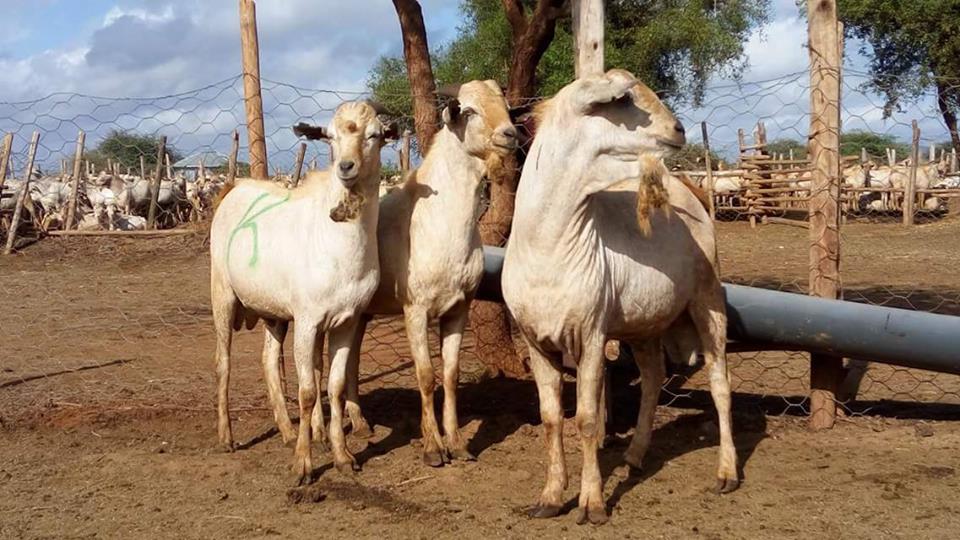
Many farmers in Kenya are constantly looking for quality goat breeds that can improve their milk and meat production and make a kill in sales. This comes at a time there is an increase in demand for the products due to their nutritious value and sweet taste.
However, accessing some of these breeds is becoming difficult because very few own pure breed while others just have crosses and importing procedures of the quality breeds into the country is not very well known by the farmers, not to mention of it being an expensive exercise.
“We use to import male Boer goats from South Africa back in 2017. The exercise was so costly as we could buy a goat at about Sh70,000 excluding logistics and permit costs,” said Daniel Gichimu Njuguna, founder of Malewa Boer Goats Farm based in Ol Kalau, Nyanadarua County.
On arrival, Njuguna says that many farmers sought the farm’s services to cross their local breeds with the Boer breeds but soon the farmers started complaining that the quality was becoming low which made the farm stop importing the breeds.
“We realised that our agents in South Africa were not keen on choosing the breeds and with time they started sending us impure breeds hence we stopped the exercise,” said Njuguna.
Currently, some of the goat breeds kept in Kenya are Toggenburg, Oberhasi, Galla, Small East African Goat, Alpines and Boer but sourcing them locally could be difficult given there is increase in the number of farmers interested in goats rearing.
RELATED ARTICLE: Facts sheet on Saanen dairy goats farming
So how can farmers export? Here are some steps:
Step1: It all starts with the farmer’s choice of the breed they want to import for breeding from the farm or company of the country of origin.
The farm or company should be an authorized dealer to avoid importing breeds that are genetically compromised or have some disease traces.
RELATED ARTICLE: Farmers prefer galla breed to traditional goats for quick cash
Step2: The farmer then visits the Ministry of Agriculture, Livestock Development and Fisheries or Kenya Trade Network Agency (KenTrade) website to obtain import permit form to fill up their details which include KRA PIN, company name (if available), their physical location, reason for importation (rearing or breeding purposes), number of animals to be imported, country of origin, name of the supplier of the livestock, and the cost of the animals.
The form is then submitted for approval by the authorized officers and the farmer is informed on the animals’ importation fee (Sh300 per goat- according to KenTrade website). Once this fee is paid, the permit is issued to the farmers allowing them to proceed.
RELATED ARTICLE: Movable house for goats and sheep reduces deaths by 25 per cent
Step3: The farmer seeks an export permit from the country of the animals’ origin which is being prepared by livestock ministries in that country to ensure that the animal being exported is disease-free, genetically superior and healthy.
The farm or company from which the animals are sourced processes the permit which takes the same process of validation as the import permit.
The importer and exporter then agrees on the logistics costs.
RELATED ARTICLE: University graduate milks Sh30,000 monthly from goats
Step4: This is the import arrangement where the consignment to be transported must be accompanied by the original copies of the export and import permits and all other documents as no live animals are allowed in the country minus the permit documents because there is a thorough inspection at the ports or border points.
RELATED ARTICLE: Rearing five dairy goats is 45 per cent more profitable than a dairy cow
Step5: The importer clears the animals and takes them to their farm.
Note: proper feeds and water arrangement should be made because clearance process can take long and the animals can experience starvation.
Caption: Galla goats breed. Photo courtesy.
















Comments powered by CComment